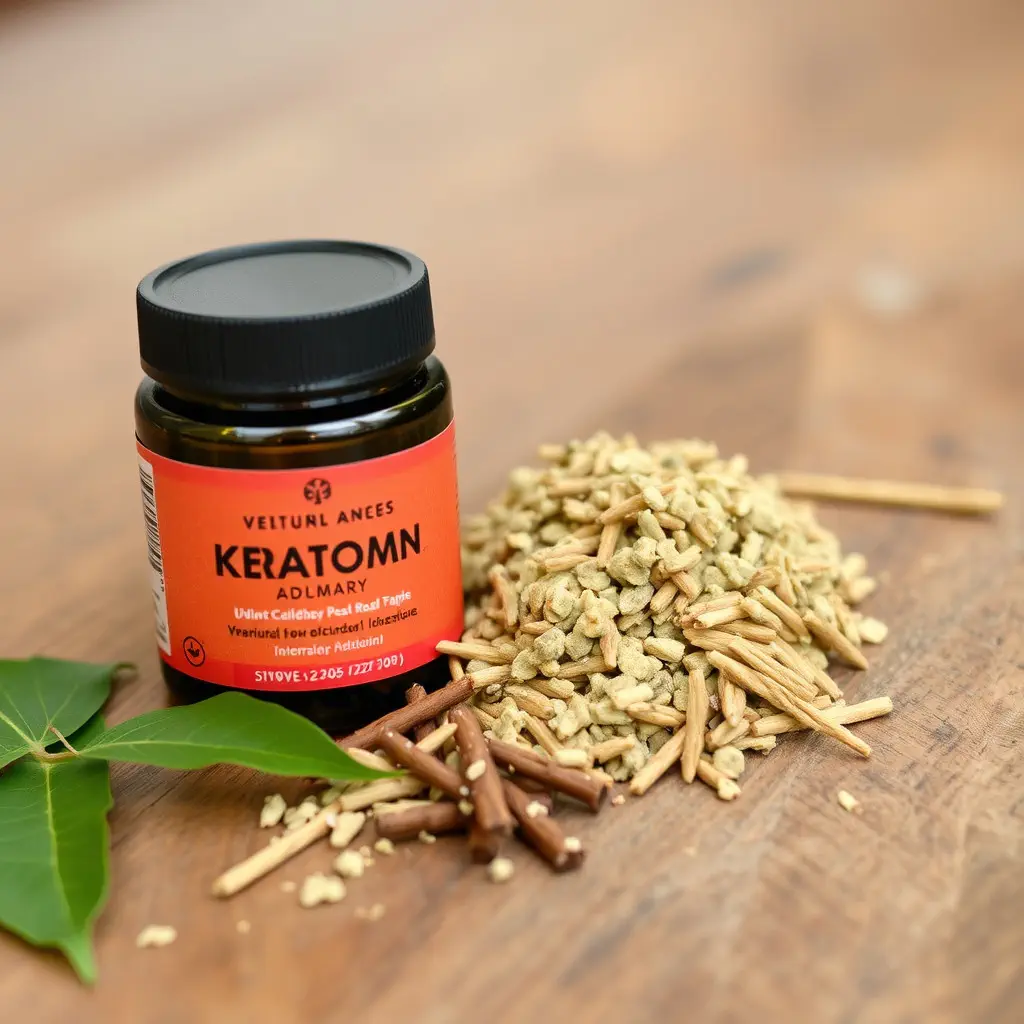In Michigan, the legality of Thai Kratom Powder varies by locality due to a lack of state-wide legislation. Some cities and counties have enacted bans or regulations based on kratom's psychoactive compounds—mitragynine and 7-hydroxymitragynine—while others allow its use more freely. Given this patchwork of laws, consumers in Michigan must be aware of the specific rules in their city or county to ensure they are compliant with local ordinances. The legality of kratom in Michigan is a complex issue that requires residents to stay informed as the situation evolves and as kratom's popularity continues to rise. It's important for users to understand the current legal status of kratom within their community, as well as to exercise caution with its use due to the variability in effects between strains and batches. Safe consumption practices include starting with a low dose, purchasing from reliable sources, and consulting healthcare professionals if necessary. The varying legal landscape underscores the necessity for consumers to stay updated on local laws regarding kratom in Michigan.
Thai Kratom Powder has garnered significant attention, both for its cultural heritage and its varied effects. As the interest in this botanical substance grows, so does curiosity about its legality, particularly within the state of Michigan, where the legal landscape is evolving. This article delves into the current status of Thai Kratom Powder’s legality in Michigan, offering a comprehensive overview to clarify any confusion. We will also explore the unique characteristics and traditional uses that make this powder distinct, and provide insights into the diverse effects it can produce. Moreover, we will guide readers through the varieties available and offer best practices for safe consumption, ensuring an informed approach to understanding Thai Kratom Powder’s role in one’s wellness regimen. Is Kratom legal in Michigan? Let’s uncover the facts together.
- Unraveling the Legal Status of Thai Kratom Powder in Michigan: A Comprehensive Overview
- Exploring the Characteristics and Uses of Authentic Thai Kratom Powder
- Navigating the Effects, Varieties, and Best Practices for Consumption of Thai Kratom Powder
Unraveling the Legal Status of Thai Kratom Powder in Michigan: A Comprehensive Overview

The status of Thai Kratom Powder within the state of Michigan has been a subject of debate and legislative scrutiny. As of recent updates, the use and possession of kratom are governed by a patchwork of regulations that vary across different jurisdictions within the state. While some cities and counties have taken a stance to regulate or ban kratom outright due to its psychoactive properties, which derive from its primary alkaloids, mitragynine and 7-hydroxymitragynine, other areas maintain a more lenient approach. State-wide legislation regarding kratom remains ambiguous, leaving the legality of Thai Kratom Powder subject to local interpretation and enforcement. It is imperative for consumers in Michigan to verify the legal status within their specific locale before purchasing or using kratom products. This variability underscores the importance for clear statewide guidelines on the regulation of kratom, a product that has gained both popularity and scrutiny for its potential wellness benefits and health concerns alike. Prospective users in Michigan should stay informed about the evolving legal landscape to navigate this complex issue responsibly.
Exploring the Characteristics and Uses of Authentic Thai Kratom Powder

Thai Kratom Powder, sourced from the leaves of Mitragyna speciosa trees native to Thailand, possesses a unique set of characteristics that have garnered global interest. The powder, often recognized for its alkaloid content, particularly mitragynine and 7-hydroxymitragynine, is celebrated for its stimulating and analgesic effects, which can vary depending on the strain and dosage. Users report a range of experiences, from heightened energy and focus to relief from pain and stress. The efficacy and quality of Thai Kratom are attributed to the specific climatic conditions and soil composition of its native habitat, which contribute to its distinct properties.
In terms of legal status, consumers in Michigan, as in other regions, are advised to be aware of the evolving regulations surrounding kratom. As of my knowledge cutoff in 2023, the legality of kratom is subject to change, with some counties and cities within Michigan taking a stance different from others. It’s crucial for consumers to verify the current legal status in their specific location before purchasing or using Thai Kratom Powder. The discrepancies in legislation highlight the importance of staying informed about local laws, as they can impact the accessibility and use of kratom products. Users in Michigan and beyond should prioritize responsible consumption and adhere to the guidelines set forth by state and local authorities.
Navigating the Effects, Varieties, and Best Practices for Consumption of Thai Kratom Powder

Navigating the effects, varieties, and best practices for the consumption of Thai Kratom Powder requires a comprehensive approach, considering its complex nature and varying legal statuses across different regions. Thai Kratom, originating from the leaves of Mitragyna speciosa trees native to Thailand, has been traditionally used in Southeast Asia for its stimulating effects. When considering the legal aspect, as with any supplement, it’s crucial to be aware of local regulations; for instance, is kratom legal in Michigan? As of the knowledge cutoff date, kratom is not explicitly illegal at the federal level in the United States, including in Michigan. However, its legal status can be subject to change and varies by county or city jurisdiction within the state. Users must stay informed on the evolving legal landscape to ensure compliance with local laws.
When exploring the varieties of Thai Kratom Powder, one will encounter distinct strains such as Bali, Maeng Da, and Indo, each offering unique alkaloid profiles that can influence their effects. The alkaloids, mitragynine and 7-hydroxymitragynine, are the primary compounds associated with kratom’s effects, which can range from stimulating to sedative, depending on the strain and dosage. It’s important for consumers to approach its use with caution, as the potency and effects can vary greatly between strains and even between batches from the same source. Best practices for consumption include starting with a lower dose to gauge individual sensitivity, using a reliable vendor, and being mindful of the potential for interaction with other substances or medications. Additionally, users should always prioritize their health and safety by adhering to recommended dosages and seeking medical advice if they have any underlying health conditions or are taking other medications.
In conclusion, the intricacies surrounding the legality of Thai Kratom Powder in Michigan present a nuanced landscape that consumers must understand before considering its use. Authentic Thai Kratom Powder, renowned for its diverse strains and effects, offers a range of experiences that can be both stimulating and calming, depending on the variety chosen. As outlined in this article, it is crucial for individuals to consume Thai Kratom responsibly and within the bounds of the law, as outlined in the comprehensive overview of its legal status ‘Is Kratom Legal in Michigan?’. Prospective users should always prioritize safety and adhere to best practices to ensure a positive experience. With careful consideration and responsible use, enthusiasts can appreciate the unique attributes of Thai Kratom Powder while navigating its complex regulatory environment.






